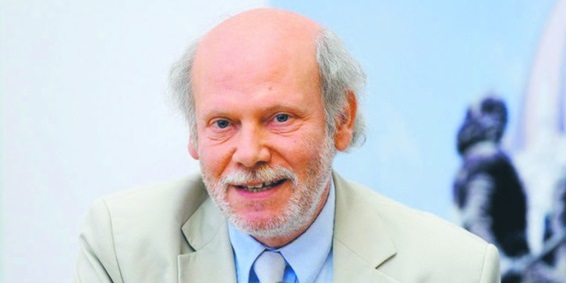Gábor Oblath: „Orbán economic policy is not a good model for countries which want to develop”
“The economic growth in the past two years was strongly connected with the inflow of the EU finances, which increased internal demand. We could observe a significant increase in public investments, but not in private ones. Companies have savings but they do not invest and without further investments there will be no long-term growth” – said Gábor Oblath, the guest of the mBank – CASE Seminar “Economic policy and macroeconomic developments in Hungary” in the interviews with the Polish press.

Source: Dziennik Gazeta Prawna
In the interview for “Obserwator Finansowy”, an online economic outlet, he referred to tax system changes introduced by the Orbán government. The changes were meant to reduce a budget deficit but resulted in considerable redistribution of income from the poorer to the richer. “We did manage to reduce the debt and the deficit, but the cost was enormous” – the expert summed up. He also referred to nationalization of pension funds, which took place in 2012 and noticed that savings from this operation, which amounted to 10 p.c. of GDP, were used to cover budget deficit and to increase spendings.
Oblath also touched upon the issue of unemployment and explained that its reduction was caused rather by migration of Hungarians to the Western Europe than by the governmental public works program. The program itself indeed offers work places, but for people without higher qualifications. “A better idea would be to introduce trainings and workshops, which would give the opportunity to gain necessary qualifications and get a normal job”. In conclusion, Oblath noted that Orbán’s policy contributed to negative changes in the institutional surrounding, which in turn will influence medium-term perspectives on Hungarian economy growth and the country will be converging with Western Europe countries very, very slowly”.
In “Dziennik Gazeta Prawna”, a Polish daily, Oblath explained how the economic situation in Hungary has changed after reforms introduced by Orbán and emphasized that they were not as good as the government claimed. “For the first three years (after FIDESZ won parliamentary elections in 2010) there was almost none GDP growth. A significant improvement occurred only in 2014-2015. Each and every forecast says that without the fundamental change of the environment, which would increase private investments, the potential growth will drop to around 2 p.c. and will remain low”. He also pointed out that if Hungary had followed the IMF guidelines, the economic situation of the country would look better, especially in regard to investments. To sum up, Oblath stated that Hungarian solutions are in general “a bad idea”. “One can govern in this way during the crisis, but in long-term perspective is does not work” – the expert concluded.
Gábor Oblath, senior research fellow at the Institute of Economics of the Hungarian Academy of Sciences, member of the Monetary Council in 2002-2009, and member of the Fiscal Council of Hungary in 2009 – 2010, was the guest during the 143rd mBank – CASE Seminar “Economic policy and macroeconomic developments in Hungary.”
Read interviews with Gábor Oblath (in Polish):
„Węgierski ekonomista do Polaków: Nie podążajcie drogą Orbana. To zły pomysł”, Dziennik Gazeta Prawna/ Forsal, 11 April 2016
„Orbanomika to zły wzór dla Polski”, Obserwator Finansowy", 22 April 2016
